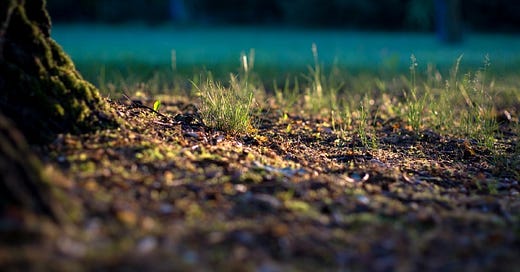In the book Traditional Tales of the Portuguese People by Teófilo Braga, many popular and traditional Portuguese folktales are collected from oral accounts from rural areas. Two short but significant traditional Christian folktales are indeed very telling. Short folk stories, collected from oral recounts that tell us where and who we are in the western modern culture:
The Tale of the Earth
In the beginning of the world, when man was digging the Earth, the Earth opened its mouth and cried out. The man complained to the Lord, and the Lord then said to the Earth:
- Be still, that thou shalt create all things, and eat all things.
Firewood Tale
When the wood was burned, it screamed; that is why the Lord took away its speech, so that it would not move the people.
The Screams
When I first read these tales, what struck me were the screams and their silencing. The cries of the “others,” the seemingly queer, bizarre, and grotesque vocabularies, the more-than-human communication, the visceral screams of Earth and wood, the outcry and protest, the ancient roar of pain and bewilderment. And how it moves and affects us.
What brings us here as humans is not hierarchically superior control, but being humbly part of an intricate living system, guarding Life. Contemporary native and contextual cultures remind us repeatedly that everything is alive, sentient, and full of consciousness. These cultures of reciprocity remind us of the responsibility of one of our intrinsic abilities: the relationship and communication with all that exist, from rocks and firewood to rivers, trees, birds, and mountains. Not a reductively verbal (or even anthropocentric) relationship, but a sensorial, imaginative, dreamlike, symbolic, mythical, and always mysterious dialogue.
The Silencing
The patriarchal monotheistic “Lord’s” act of silencing the Earth or the wood is a violent cut of this primal relationship, of listening with the heart and moving with the more than human, in a commotion of sacred togetherness. A severance of the relationship that connects us with our ecological niche, in visceral and deep belonging. It is a silencing gesture that sums up the positioning of our modern culture: a patriarchal silencing and distancing, where the Earth, firewood, and Nature no longer have a sovereign voice and have become inert resources at the exclusive service of humanity.
This profound desacralization of Nature in favor of a god “up there”, favored the interruption, forgetfulness, and even ridicule of ancient dialogues that sustained us as part of the territory since the beginning of time.
This silencing and consequent forgetting left us orphans and lonely because we no longer know how to listen to the richness that surrounds us, the more-than-human stories, the howled tales, the singed laughter, the emotional cries, the prophetic hums, and the textured silences. We lost sight of the dignity and responsibility of the relationship with the “more than human” in the urgency to extract and control, in the illusion that one human Life is worth more than all others.
The Feeling
At the beginning of the world, we listened with our hearts, as these two folktales remind us. The cries of the Earth and the Trees moved the Soul and us. These dialogues flowed through the chthonic body and streamed into the cosmic mind. We related to these confabulations and told their stories. By silencing their roars and songs, we’ve muted their company, stories, joys, indispensable and rich teachings, and real inspirations, which guided us for millennia. In muting these primal dialogues, we forgot the rituals of reciprocity and gratitude, abandoned the responsibility of giving and receiving in devotion, numbed the heart, and violated Life. With these voices hidden, we unlearned how to be guardians of Life.
Before the great silencing, by the illusion of power and exceptionalism and in favor of objectivity and facts, we were really a part of the living web.
The antidote to this strangulation of the Soul is to allow ourselves to be affected again, to have the courage to let ourselves be moved. To feel. To listen. To allow the enchantment of Life to remind us of who we are. Let the affection for Life affect us again, remind us to feel and hear the cries that have been silenced in this territory for at least two millennia.
To listen again after two thousand years of stillness is both an act of courage and madness, a responsibility and an urgency, remembering the true reciprocity and porosity of caring for Life.
Here, subscribe to access other wild tales based on ancient Iberian mythology.





